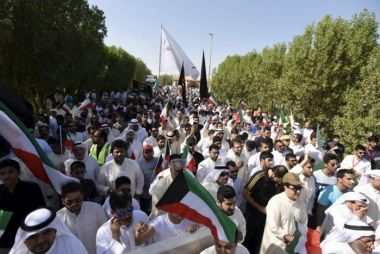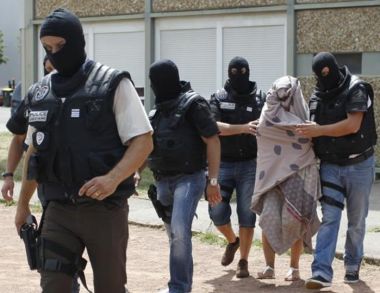3 countries—Tunisia, Kuwait and France—from 3 continents mourn 67 dead after terrorist attacks

Three countries from three separate continents were in mourning on Saturday following nearly simultaneous attacks that killed at least 67 people carried out by militants believed to be linked to the Islamic State.
The audacious terrorist attacks took place in Tunisia, Kuwait and France after an ISIS leader called on Muslim militants to make the holy month of Ramadan a "calamity for the infidels."
In Tunisia, thousands of foreign tourists were evacuated by tour companies on Saturday after a gunman mowed down the holidaymakers at a beach hotel, killing 39 of them.
Britain's foreign office said 15 Britons were among those confirmed killed in the attack in the resort town of Sousse, 140 km south of the capital Tunis.

It was not the first time that Islamist militants launched a terrorist attack on Tunisia, a relatively peaceful country in north Africa. Last March, gunmen attacked the Bardo Museum in Tunis, killing an undetermined number of foreign tourists as they arrived by bus, Reuters said.
In Kuwait, thousands of people filled the streets on Saturday demanding justice and calling for national unity as they joined the burial of the 27 people killed in a suicide bombing of a mosque a day earlier. It was the worst ever terrorist attack in Kuwait, which also injured 227 people.
Authorities arrested the owner of a car that took the suicide bomber to the Shi'ite Imam al-Sadeq mosque which were filled with 2,000 worshippers when the assailant detonated the bombs strapped on his body.

Kuwaiti officials said they have a strong reason to believe that the attack was meant to create a rift between majority Sunnis and minority Shi'ites and harm the peaceful co-existence of the two sects in Kuwait, Reuters reported.
In France, authorities grilled a worker of North African origin on Saturday following what President Francois Hollande described as a terrorist attack when the worker allegedly beheaded his boss, left his head hanging on a fence, and then attempted to blow up a US-owned chemicals plant in Lyon, southeastern France. Two people were hurt by the explosion.
Also on Saturday, two female suicide bombers killed at least three people and injured 16 in the capital of the northeastern Nigerian state of Borno following the three nearly simultaneous attacks in three cities in three different continents the day before.
The two women tried to enter a hospital but were foiled by security guards at the gate. They then blew themselves up, killing themselves and the guards, witnesses said.
There was no confirmation yet if the attacks were indeed coordinated as ordered by ISIS. But if they were an answer to the ISIS spokesperson's call for terror, "it would represent a hideous perversion of Islam's most holy period, which began June 17 and ends July 17," Fox News reported.
"While we're still working to determine whether the attacks were coordinated or directed by ISIL (Islamic State), they bear the hallmarks that have defined ISIL's violent ideology or those inspired by such hatred. There is no doubt that ISIL poses a continuing threat, and we remain concerned about its ability to direct or inspire attacks beyond Iraq and Syria," a US official said.
ISIS spokesperson Al-Adnani reportedly said in an audio message: Jihadists should make Ramadan a time of "calamity for the infidels ... Shi'ites and apostate Muslims."
"Muslims everywhere, we congratulate you over the arrival of the holy month. Be keen to conquer in this holy month and to become exposed to martyrdom," he added.











